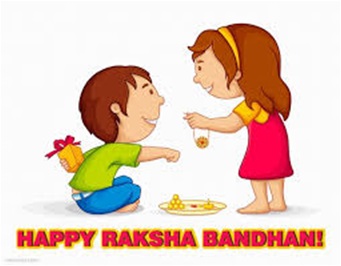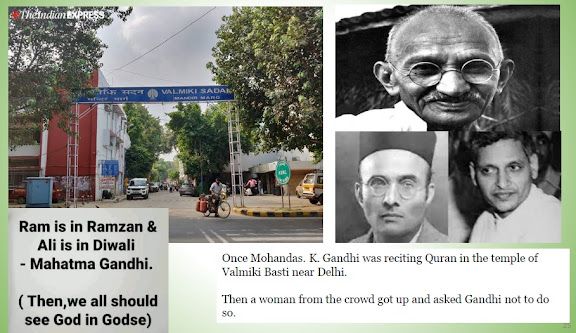Raksha Bandhan or Rakhi Festival – 7th August 2017
Raksha Bandhan is celebrated in Shravana month during full moon day or Purnima day.
Raksha Bandhan in Sanskrit literally
means "the tie or knot of protection". The word Raksha means protection, while Bandhan is the verb to tie. It is an
ancient Hindu festival that ritually celebrates the love and duty between
brothers and sisters. During the festival, sisters tie a rakhi (a holy thread) around their brothers’ wrists signifying love and well
being of their brothers.
In return, brothers
ritually pledge to protect and take care of their sisters under all
circumstances. To many, the festival transcends biological family, brings
together men and women across religions, diverse ethnic groups and ritually
emphasizes harmony and love.
The
prayer uttered during this festival is a self composed note, or one of many
published Rakhi poems and prose. One of the earliest
examples of a Rakhi prayer is found in
Book V, Chapter V of Vishnu Purana; it is the prayer that Yasoda says while
tying a Raksha Bandhan amulet on Krishna's wrist. An abridged form of
this prayer is:
May the lord of all beings protect
you,
May the one who creates, preserves and dissolves life protect thee,
May Govinda guard thy head; Kesava, thy neck; Vishnu, thy belly;
the eternal Narayana, thy face, thine arms, thy mind, and faculties of sense;
May all negativity and fears, spirits malignant and unfriendly, flee thee;
May Rishikesa keep you safe in the sky; and Mahidhara, upon earth.
May the one who creates, preserves and dissolves life protect thee,
May Govinda guard thy head; Kesava, thy neck; Vishnu, thy belly;
the eternal Narayana, thy face, thine arms, thy mind, and faculties of sense;
May all negativity and fears, spirits malignant and unfriendly, flee thee;
May Rishikesa keep you safe in the sky; and Mahidhara, upon earth.
After the prayer,
the sister applies a tilak , a colorful mark on the forehead of the brother. After the tilak, the brother pledges to protect her and take care of his sister under all
circumstances.
The scriptures,
epics of Hinduism is peppered with stories of rakhi and Raksha Bandhan. Some of these include:
Indra Dev
According to Bhavishya Purana, in the war between Gods and
demons, Indra – the deity of sky, rains and thunderbolts – was disgraced by the
powerful demon King Bali. Indra’s wife Sachi consulted Vishnu, who gave her
a holy bracelet made of cotton thread. Sachi tied the holy thread around Indra’s
wrist and prayed for his well being and success. Indra successfully defeated the Bali and recovered Amaravati. This story inspired the protective
power of holy thread. The story also suggests that the Raksha Bandhan thread in ancient India
were amulets, used by women as prayers and to guard men going to war.
King Bali and
Goddess Laxmi
According to
Bhagavata Purna and Vishnu Purana, after Vishnu won the three worlds from the demon King Bali, Bali asked
Vishnu to stay with him in his palace, a request Vishnu granted. Vishnu's wife,
Goddess Lakshmi
did not like the palace or his new found friendship with Bali, and
preferred that her husband and herself
return to Vaikuntha. So she went to Bali, tied a rakhi and made him a brother to her. Bali asked her what gift she desired. Lakshmi asked that Vishnu be freed from the
request that he live in Bali's palace. Bali consented, as well accepted her as
his sister.
Santoshi Maa
Ganesh had two sons, Shubh and Labh. The two boys became frustrated
that they had no sister to celebrate Raksha Bandhan. They asked their father Ganesh for a sister, but to no avail. Finally, on the persuasion of saint Narada, Ganesh created a daughter namedmSantoshi Maa by divine flames that emerged from Ganesh's wives, Ruddhi (Amazing) and Siddhi (Perfection).
Rakhi is symbolic of showering love,
affection and protection between sisters and brothers – being renewed and
reinforced every year. Strengthening of sisterhood – brotherhood is the main
fulcrum for prosperity, pleasure and peace in the family life.




Comments